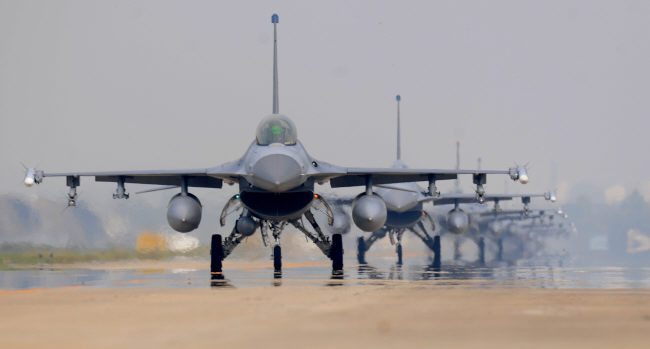The Republic of Korea has finalized an agreement with the U.S. government for BAE Systems to perform upgrades and systems integration for its fleet of more than 130 F-16 aircraft. The company will now begin the first phase of the work under contract through the U.S. Department of Defense’s Foreign Military Sales program.
“This agreement marks a significant expansion of our F-16 modernization business, and we’re eager to get to work,” said Erin Moseley, president of BAE Systems’ Support Solutions sector. “When we were chosen by the Republic of Korea last year, it showed that we are a viable and experienced provider of fighter jet upgrades and systems integration. As demonstrated by today’s important milestone, we offer cost-effective modernization solutions, customized to meet any country’s requirements.”
Under terms negotiated by the U.S. Air Force and the U.S. Defense Security Cooperation Agency, BAE Systems will upgrade 130-plus KF-16C/D Block 52 aircraft, to include associated equipment, parts, training, and logistical support. Phase One of the work will begin immediately and will involve the initial design and development of the upgrade solution. Phase Two of the work, as proposed, would begin next year and would complete the production and installation of the upgrade kits in all of the aircraft over the next several years.
BAE Systems’ experience with the F-16 dates back to the original 1970s-era aircraft, and has included flight control computers, cockpit displays, electronic warfare systems, and support equipment. Today, the company is a major provider of mission electronics and flight systems for F-16 fleets around the world. The U.S. Air Force, for example, has approximately 270 F-16s in service that have been upgraded with the BAE Systems’ fire control system and advanced Ethernet interface.
The work to upgrade the KF-16 fleet will be performed primarily at BAE Systems’ facility in Fort Worth, Texas. Other company sites in Florida, New York, California, and Virginia will also be involved. BAE Systems expects to hire approximately 300 employees to help support the program.









